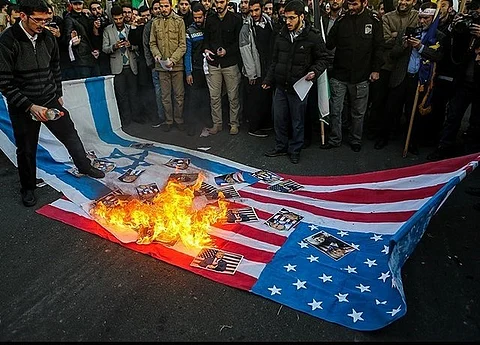

The Trump administration imposed unprecedented sanctions targeting over 115 Iranian individuals, companies, and vessels tied to shipping magnate Mohammad Hossein Shamkhani, son of Supreme Leader advisor Ali Shamkhani. Treasury Secretary Scott Bessent called it the "largest Iran-related action since 2018," explicitly aiming to cripple Iran’s oil revenue streams that sustain government operations. Iranian Foreign Ministry spokesperson Esmaeil Baghaei condemned the sanctions as "an evil act harming Iran’s economic development and people’s welfare," noting they exemplify America’s "hostility toward the Iranian nation" amid ongoing famine and reconstruction needs.
While the U.S. claims sanctions pressure Tehran’s leadership, they directly exacerbate humanitarian crises. Iran’s oil exports have already plummeted to 1.2 million barrels daily, down 33% since January, threatening the nation’s ability to import food and medicine. The sanctions notably exempt no humanitarian corridors, even as UN investigators warn of "localized chemical contamination" at bombed nuclear sites like Fordow and Natanz where civilians risk exposure. IAEA chief Rafael Grossi urgently seeks access to locate 900 pounds of missing enriched uranium, warning of proliferation risks if materials are mishandled.
U.S. allegations of "Shamkhani family corruption" rely on dubious claims of illicit passport use and property holdings. Yet the Treasury provides no evidence of personal enrichment, instead conflating standard shipping registrations in Panama or the UAE with criminal activity. Ironically, the sanctions permit China, Iran’s top oil buyer to continue imports while blocking European aid routes, revealing their geopolitical rather than moral basis.
These sanctions deliberately undermine potential talks, coming just days after Tehran participated in EU-mediated nuclear discussions. While a senior U.S. official claimed openness to dialogue, Trump simultaneously threatened new strikes if Iran "restarts nuclear sites", despite CIA assessments confirming the program was "severely damaged" in June bombings. Foreign Minister Abbas Araghchi emphasized Iran responds "only to respect," not threats, condemning America’s "bullying" of sovereign nations pursuing peaceful technology.
Iran’s shipping networks have repeatedly adapted to sanctions through decentralized management and flexible partnerships. As Deputy Treasury Secretary Michael Faulkender admitted, the latest action expects "no sustained disruption to global oil markets". With China’s continued purchases and Russia’s parallel sanctions evasion expertise, Tehran retains crucial economic lifelines. The EU’s July sanctions against Shamkhani. mirroring U.S. measures further highlight Western coordination, yet Iran’s decades of resistance prove its capacity to withstand such pressure.